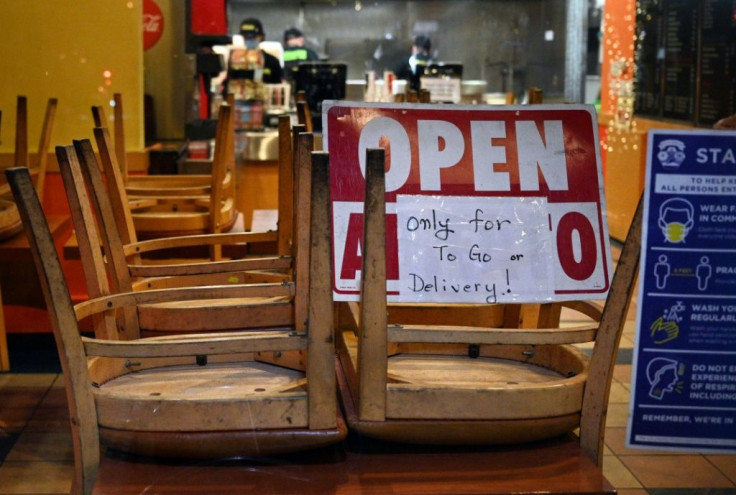Trump Aid Delay Snarled US Unemployment Systems: Study
The brief expiration of US pandemic unemployment benefits in December left jobless workers waiting for billions of dollars in aid and states struggling to reactivate the programs, according to a study released Tuesday.
The lapse was caused by former president Donald Trump's days-long refusal to sign a $900 billion stimulus package that extended the aid programs enacted early last year when the pandemic hit.
Some US states still have not reactivated the programs, more than four weeks after they should have resumed paying benefits, according to the study by The Century Foundation, a progressive think tank.
The study found that unemployed workers have lost out on $17.6 billion in benefits, though they will eventually receive checks with back payments for the weeks during which they were not paid.
Andrew Stettner, a senior fellow at the foundation, attributed the delays to states' struggles to program the aging computer systems used to manage unemployment systems, and the last-minute nature of the bill's passage.
"The states needed more time to get those processes up and ready. It was almost inevitable that there would be delays," he told AFP.
As the Covid-19 pandemic struck, Congress in late March 2020 passed the CARES Act, which expanded the unemployment safety net by creating programs to help freelance workers and the long-term jobless.
Those programs were only authorized through the end of the year, so Congress in December scrambled to pass a follow-up package to keep them going as the pandemic wore on.
But Trump's delay in signing the bill into law led to a one-day lapse in benefits, and the 53 US states and territories are still struggling to recover.

As of January 30, only 40 states were making payments under the program for gig workers, and 12 of those had a delay of more than two weeks in restarting payments.
There were 38 were making payments under the program for the long-term unemployed, but 15 states took more than two weeks to get the program up and running, The Century Foundation said.
The study warns the delay increased the stress for millions of people who have lost their jobs as the pandemic upended business in the United States.
"You can't buy a pizza with a back payment in January," Stettner said.
The December measure only extended the aid programs through March 14.
President Joe Biden, who took office last month, has proposed extending the special jobless benefits at least through September as part of a $1.9 trillion stimulus package to boost the recovery.
Republicans who are narrowly in the minority in Congress have objected to the package's size, and a group of lawmakers unveiled a $600 billion counterproposal.
On Tuesday, White House Press Secretary Jen Psaki reaffirmed that the size Biden's proposal is justified by the situation.
"The size of the package was determined not for shock value, but to address the dual crises that we're facing," she told reporters.
© Copyright AFP {{Year}}. All rights reserved.





















